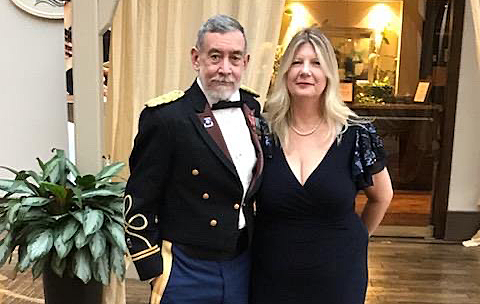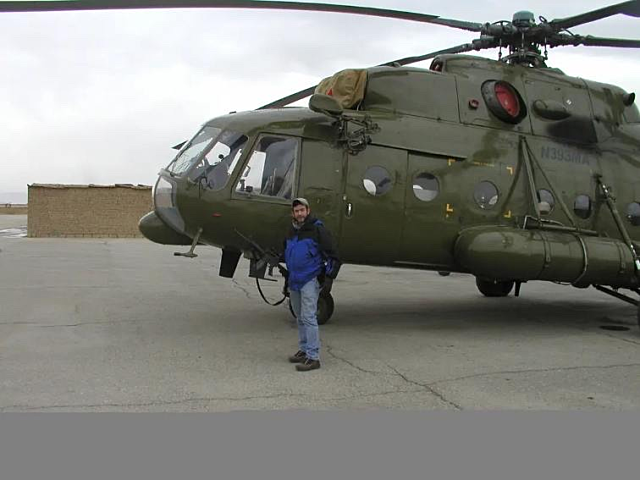A Veteran’s Resilience: An Unwavering Journey to Health

He served his country for almost two decades. Then, doctors from UF Health were able to return the favor.
Dick’s military journey began in 1979 when he enlisted, first as a helicopter mechanic followed by completing flight school. His service was marked by long hours, unwavering dedication and the camaraderie of a close-knit military community. In fact, his path eventually led him to the 160th Special Operations Aviation Regiment, famously known as the Night Stalkers.
Throughout his military career, Dick served in various capacities, putting him at the scene of many conflicts, beginning in El Salvador in the early ’80s to the Gulf Wars and beyond.
“I’ve seen a little bit of everything,” he said.
After retiring from the service in 1996, he worked with the State Department and the military until 2018. Shortly after, Dick’s health presented an unexpected set of severe health challenges.
His wife, Janice, recalled the critical turning point when their lives shifted from harmony to hospitals.
“He woke up one morning and he had a basketball stomach. He’s not a really big person anyway,” she said. They quickly sought medical help, leading to a diagnosis of cirrhosis, a condition in which the liver is damaged by scar tissue.
Their search for treatment led them to another institution, where they embarked on a yearlong journey to get on the transplant list. They faced countless challenges and delays while Dick’s health continued to deteriorate. During this time, they fought the frustration of being caught in a medical limbo, going through numerous tests and procedures that brought him no closer to a new organ.
On average, more than 10,000 adults and children across the country are waiting for a new liver.
“I had to have paracentesis twice a week,” Dick said. “And I just kept feeling worse and worse. I kind of started giving up hope.”
In addition to his liver, his kidneys, compromised by the long wait, necessitated dialysis — and would need transplantation, too.
A chance encounter at one of their visits led them to the University of Florida. The difference was night and day, Janice said. Dr. Roniel Cabrera, hepatology section chief and medical director of liver transplantation for the division, immediately took up Dick’s case and offered them hope — for both an organ and a return to normalcy.
“The liver transplant team was efficient and compassionate,” Janice said. “Dick gave me seven days to see something change before he wanted to go home and be done with it all. And three days later, we got the call.”
On Jan. 28, 2023, 24 days after he was put on the wait list, Dick received his liver transplant, following up with a kidney transplant the very next day.
“It felt like the turning point,” Dick said. “I received both organs from the same donor, and I can’t even begin to tell you how grateful I am to them. Janice was by my side throughout the whole process, and if I have any advice for future patients, it’s that you need someone to be there for you.”
Janice credits the nurses and physicians for being her support throughout her days and nights at the hospital.
“Dr. Thiago Beduschi was incredibly upbeat, and made us feel like the surgery would go well,” she said. “Dr. Rushi Shah was his biggest believer, and Dr. Abbas Shahmohammadi was there at every step. Dr. Cabrera really led the way.”
Now, the couple looks forward to getting back to traveling, and enjoying their time in retirement.
“We celebrate Dick’s unwavering dedication, and his remarkable journey is a testament to the spirit of veterans everywhere,” Dr. Cabrera said. “We’re grateful we could give back in this way.”
